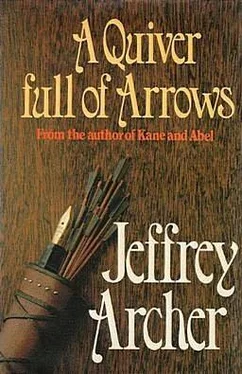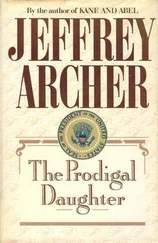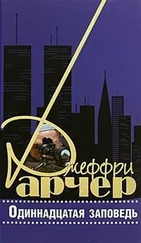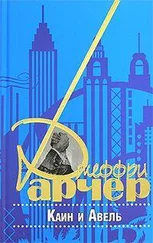“If you insist, sir,” said David Heath resignedly.
“I insist.”
The project manager departed to his own room and a sleepless night. Early the next morning he delivered a hand-written, personal and private letter to the minister, who sent a car round immediately for the Scottish industrialist.
Sir Hamish was driven slowly through the noisy, exuberant, bustling crowds of the city in the minister’s black Ford Galaxy with the flag flying. People made way for the car respectfully. The chauffeur came to a halt outside the Ministry of Buildings and Public Works in Paseo de la Reforma and guided Sir Hamish through the long white corridors to a waiting room. A few minutes later an assistant showed Sir Hamish through to the Secretary of State and took a seat by his side. The minister, a severe-looking man who appeared to be well into his seventies, was dressed in an immaculate white suit, white shirt and blue tie. He rose, leaned over the vast expanse of green leather and offered his hand.
“Do have a seat, Sir Hamish.”
“Thank you,” the chairman said, feeling more at home as he took in the minister’s office; on the ceiling a large propellor-like fan revolved slowly, making little difference to the stuffiness of the room, while hanging on the wall behind the minister was a signed picture of President José López Portillo in full morning dress and below the photo a plaque displaying a coat of arms.
“I see you were educated at Cambridge.”
“That is correct, Sir Hamish, I was up at Corpus Christi College for three years.”
“Then you know my country well, sir.”
“I do have many happy memories of my stays in England, Sir Hamish; in fact, I still visit London as often as my leave allows.”
“You must take a trip to Edinburgh some time.”
“I have already done so, Sir Hamish. I attended the Festival on two occasions and now know why your city is described as the Athens of the North.”
“You are well informed, Minister.”
“Thank you, Sir Hamish. Now I must ask how I can help you. Your assistant’s note was rather vague.”
“First let me say, Minister, that my company is honored to be considered for the city ring road project and I hope that our experience of thirty years in construction, twenty of them in the third world” — he nearly said the undeveloped countries, an expression his project manager had warned him against — “is the reason you, as minister in charge, found us the natural choice for this contract.”
“That, and your reputation for finishing a job on time at the stipulated price,” replied the Secretary of State. “Only twice in your history have you returned to the principal asking for changes in the payment schedule. Once in Uganda when you were held up by Amin’s pathetic demands, and the other project, if I remember rightly, was in Bolivia, an airport, when you were unavoidably delayed for six months because of an earthquake. In both cases, you completed the contract at the new price stipulated and my principal advisers think you must have lost money on both occasions.” The Secretary of State mopped his brow with a silk handkerchief before continuing. “I would not wish you to think my government takes these decisions of selection lightly.”
Sir Hamish was astounded by the Secretary of State’s command of his brief, the more so as no prompting notes lay on the leather-topped desk in front of him. He suddenly felt guilty at the little he knew about the Secretary of State’s background or history.
“Of course not, Minister. I am flattered by your personal concern, which makes me all the more determined to broach an embarrassing subject that has...”
“Before you say anything else, Sir Hamish, may I ask you some questions?”
“Of course, Minister.”
“Do you still find the tender price of $39,121,110 acceptable in all the circumstances?”
“Yes, Minister.”
“That amount still leaves you enough to do a worthwhile job while making a profit for your company?”
“Yes, Minister, but...”
“Excellent, then I think all you have to decide is whether you want to sign the contract by midday today.” The minister emphasized the word “midday” as clearly as he could.
Sir Hamish, who had never understood the expression “a nod is as good as a wink,” charged foolishly on.
“There is, nevertheless, one aspect of the contract I feel that I should discuss with you privately.”
“Are you sure that would be wise, Sir Hamish?”
Sir Hamish hesitated, but only for a moment, before proceeding. Had David Heath heard the conversation that had taken place so far, he would have stood up, shaken hands with the Secretary of State, removed the top of his fountain pen and headed toward the contract — but not his employer.
“Yes, Minister, I feel I must,” said Sir Hamish firmly.
“Will you kindly leave us, Miss Vieites?” said the Secretary of State.
The assistant closed her shorthand book, rose and left the room. Sir Hamish waited for the door to close before he began again.
“Yesterday I had a visit from a countryman of yours, a Mr. Victor Perez, who resides here in Mexico City and claims—”
“An excellent man,” said the minister very quietly.
Still Sir Hamish charged on. “Yes, I daresay he is, Minister, but he asked to be allowed to represent Graham Construction as our agent and I wondered—”
“A common practice in Mexico, no more than is required by the law,” said the minister, swinging his chair around and staring out of the window.
“Yes, I appreciate that is the custom,” said Sir Hamish, now talking to the minister’s back, “but if I am to part with ten percent of the government’s money I must be convinced that such a decision meets with your personal approval.” Sir Hamish thought he had worded that rather well.
“Um,” said the Secretary of State, measuring his words, “Victor Perez is a good man and has always been loyal to the Mexican cause. Perhaps he leaves an unfortunate impression sometimes, not out of what you would call the ‘top drawer,’ Sir Hamish, but then we have no class barriers in Mexico.” The minister swung back to face Sir Hamish.
The Scottish industrialist flushed. “Of course not, Minister, but that, if you will forgive me, is hardly the point. Mr. Perez is asking me to hand over nearly four million dollars, which is over half of my estimated profit on the project, without allowing for any contingencies or mishaps that might occur later.”
“You chose the tender figure, Sir Hamish. I confess I was amused by the fact you added your date of birth to the thirty-nine million.”
Sir Hamish’s mouth opened wide.
“I would have thought,” continued the minister, “given your record over the past three years and the present situation in Britain, you were not in a position to be fussy.”
The minister gazed impassively at Sir Hamish’s startled face. Both started to speak at the same time. Sir Hamish swallowed his words.
“Allow me to tell you a little story about Victor Perez. When the war was at its fiercest” (the old Secretary of State was referring to the Mexican Revolution, in the same way that an American thinks of Vietnam or a Briton of Germany when they hear the word “war”), “Victor’s father was one of the young men under my command who died on the battlefield at Celaya only a few days before victory was ours. He left a son born on the day of independence who never knew his father. I have the honor, Sir Hamish, to be godfather to that child. We christened him Victor.”
“I can understand that you have a responsibility to an old comrade, but I still feel four million is—”
“Do you? Then let me continue. Just before Victor’s father died I visited him in a field hospital and he asked only that I should take care of his wife. She died in childbirth. I therefore considered my responsibility passed on to their only child.”
Читать дальше












